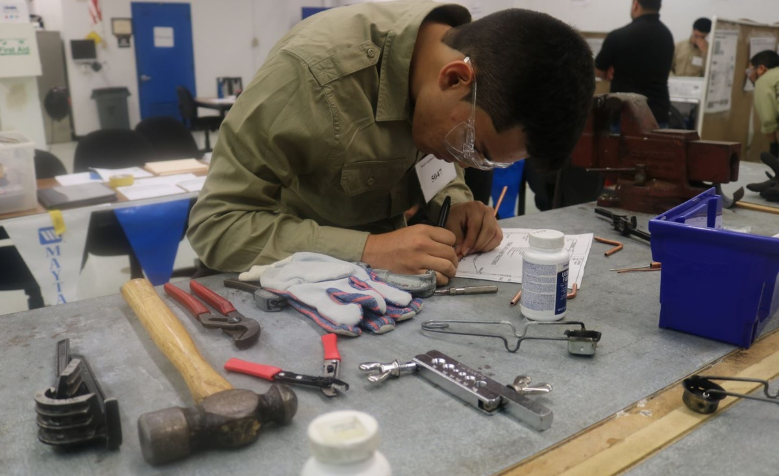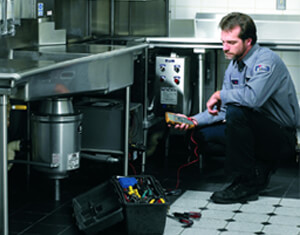Crucial Tips for Effective Ref Repair to Expand Home Appliance Life-span
When it comes to your refrigerator, proper repair work and upkeep are crucial for long life. Comprehending typical problems and recognizing when to act can make all the difference.
Understanding Typical Refrigerator Troubles
Fridges are crucial in keeping your food fresh, yet they can encounter a variety of typical problems that disrupt their efficiency. If you observe food spoiling quicker than usual, examine the thermostat settings or consider if the door seals are damaged. Identifying these issues early can save you time and money in repair services, ensuring your fridge runs smoothly and successfully.
Regular Upkeep Practices
To maintain your appliances running efficiently, you need to stay on top of regular upkeep methods. Tidy the condenser coils, check the door seals, and keep track of the temperature setups to guarantee peak performance. These basic tasks can save you money and time on repairs down the line.
Tidy Condenser Coils Frequently
Cleansing your condenser coils routinely can considerably improve your home appliance's efficiency. Dirt and dirt develop up on these coils over time, causing your home appliance to work more difficult and eat even more energy. To maintain them tidy, disconnect your home appliance and thoroughly eliminate any kind of protective covers.
Inspect Door Seals
3 easy steps can assist you ensure your appliance's door seals remain in great problem. Check the seals regularly for any kind of splits, splits, or indications of wear. These problems can cause air leakages, impacting effectiveness. 2nd, clean the seals making use of warm, soapy water to remove any type of particles or gunk. A tidy seal assures a limited fit and much better efficiency. Lastly, execute a simple test by closing the door on a notepad. If you can quickly pull it out without resistance, the seal might need changing. By adhering to these actions, you'll keep your device's effectiveness and durability, saving you money on energy costs and fixings in the future.
Monitor Temperature Level Settings
On a regular basis checking your appliance's temperature settings is important for best performance and performance. Whether you're taking care of a fridge, freezer, or stove, maintaining an eye on these settings can stop many problems. For refrigerators, go for temperature levels between 35 ° F and 38 ° F; for fridges freezer, stick around 0 ° F. If the temperatures are too expensive or reduced, your home appliance may work harder, squandering power and shortening its lifespan. Use a thermometer to check these setups consistently, especially after significant changes, like relocating your home appliance or adjusting the thermostat. If you see variations, readjust the settings as necessary and speak with the user manual for support. By remaining aggressive regarding temperature level surveillance, you'll assure your devices run smoothly and last much longer.
Fixing Air Conditioning Problems
When your fridge isn't cooling properly, it can bring about spoiled food and wasted money, so attending to the concern without delay is vital. Beginning by checking the temperature setups to validate they go to the recommended levels, generally around 37 ° F for the refrigerator and 0 ° F for the freezer. If the settings are appropriate, examine the door seals for any gaps or damage; a defective seal can allow warm air to get in.
Following, check out the vents inside the refrigerator and freezer. Verify they're not obstructed by food things, as this can disrupt air flow. Pay attention for the compressor; if it's not running or making uncommon noises, it might need focus. Finally, inspect the condenser coils, generally situated at the back or bottom of the device. Dirt and particles can gather, triggering cooling issues. Tidy them with a vacuum or brush to maximize efficiency. If problems linger, it may be time to call a specialist.
Dealing With Water Leakage and Ice Accumulation
If you're managing water leak or ice accumulation in your home appliance, it's vital to determine the resource of the issue. By pinpointing where the water is originating from, you can avoid more concerns and stay clear of costly fixings. Allow's explore some reliable methods to deal with these common troubles.
Identify Leak Resources
Just how can you successfully determine the sources of water leak and ice accumulation in your home appliances? Start by checking the seals and gaskets on your fridge and freezer doors. By methodically checking these areas, you'll determine the source of the problem, allowing you to take the necessary steps to fix it and expand your home appliance's lifespan.
Stop Ice Development
To avoid ice formation in your home appliances, beginning by validating the temperature settings are proper. If your refrigerator or freezer is as well cool, it can lead to excessive ice accumulation. Check the door seals frequently; damaged seals can allow cozy air in, causing condensation and ice development.
Maintain the device well-ventilated and stay clear of congestion, as this can block air movement - GE appliance repair Oro Valley Dependable Refrigeration & Appliance Repair Service. Likewise, regularly thaw your fridge freezer if it does not have an automatic defrost feature.
If you observe water leak, identify and repair any obstructed water drainage openings, as they can contribute to ice accumulation. Finally, tidy the coils and confirm they're operating effectively to preserve peak performance. Taking these actions will certainly assist prolong your appliance's life-span and effectiveness.
Dealing With Noisy Refrigerator Sounds
While it could seem alarming, a noisy fridge commonly signals minor concerns rather than significant malfunctions. Common perpetrators consist of the compressor, fans, and water lines.
Following, check for loose products inside. Occasionally, containers or racks can rattle, creating unwanted noise. Tighten up or rearrange them to remove the sounds.
If you observe a clicking sound, it could be the defrost timer. This is normally safe yet can indicate it needs assessment.
Lastly, verify your refrigerator is degree. An out of balance appliance can create resonances and noise. Utilize a level to examine, and adjust the feet if needed. Dealing with these issues immediately can aid maintain your refrigerator's performance and extend its lifespan.
When to Replace Components vs. Full Replacement

Consider the price of repairs versus the appliance's value. Additionally, if you see ongoing issues that maintain reoccuring, it's a sign that your device read this has actually gotten to the end of its life.
Understanding When to Call a Professional
Just how can you inform when it's time to employ a specialist for home appliance repair work? If you discover unusual sounds, smells, or leakages, it's a clear signal that something's incorrect. Don't overlook these signs; they usually suggest deeper concerns. If your appliance quits working entirely or regularly journeys circuit breakers, it's one more warning.
You should also consider your very own convenience degree with repair services. If you're unclear about detecting the problem or do not have the right tools, it's finest to get to out for help. Keep in mind, trying complex repair work can result in more damage and even security risks.

Frequently Asked Concerns
Exactly how Usually Should I Tidy the Fridge Coils?
You need to clean your fridge coils every 6 months. This assists keep performance and prevents getting too hot. If you observe extreme dirt or pet dog hair, tidy them a lot more often to guarantee your fridge runs efficiently.

Can I Make Use Of Vinegar for Cleaning My Refrigerator?
Yes, you can make use of vinegar to cleanse your fridge! It's an excellent natural cleaner that removes odors and spots. Refrigerator repair experts Dependable Refrigeration & Appliance Repair. Simply blend it with water, use it to surface areas, and wipe down for a fresh, tidy fridge
What Temperature Should My Fridge Be Establish To?
You ought to establish your fridge to 37 ° F(3 ° C) for find out this here excellent food conservation. This temperature maintains your food fresh while avoiding wasting, ensuring your groceries last longer and lowering waste. It's an easy modification you can make!
Does a Fridge Need to Be Leveled?
Yes, your fridge needs to be leveled. If it's unequal, it can affect cooling performance and create excess sound. Examine the progressing legs and readjust them to ensure appropriate balance for optimal performance.
Just How Can I Lower Fridge Energy Consumption?
To minimize your refrigerator's energy intake, maintain it clean and well-ventilated, examine door seals for leakages, established the temperature level between 35-38 ° F, and avoid overloading it. These actions try this web-site can substantially reduce your energy bills.